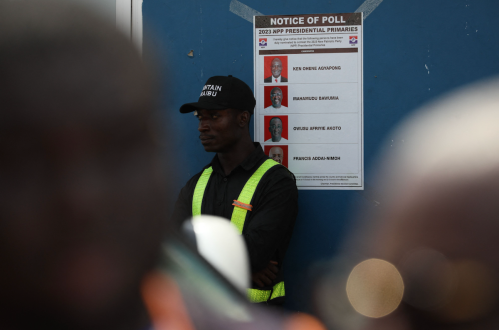The summary below refers to a report released by the United Nations Development Program in January 2006.
The five Central Asian republics could as much as double their incomes over the next 10 years by strengthening regional economic cooperation, says a report just released by the United Nations Development Program and prepared under the direction of Project Leader and Lead Author, Johannes Linn, Executive Director of the Wolfensohn Initiative at the Brookings Institution.
The Report, “Bringing Down Barriers: Regional Cooperation for Human Development and Human Security,” is a comprehensive analysis of the many challenges that confront Central Asia, including high trade costs, environmental devastation, increased inequality, rising migration, the rapid spread of HIV/AIDS and poor governance. Download the full report.
There has been recent progress towards regional cooperation, but the Report shows that the barriers created by borders negatively affect peoples’ lives. The Report contends that increased cooperation among the Central Asian republics—Kazakhstan, Kyrgyzstan, Tajikistan, Turkmenistan and Uzbekistan—would produce substantial political and economic gains, including income increases of 50 percent to 100 percent over the next ten years.
The cost of non-cooperation is continued deterioration in income distribution, social services and general living conditions, according to the Report, and possibly a descent into the vicious cycle of economic crisis and corrupt governance that often leads to social unrest.
“This Report clearly identifies the immense potential economic and human benefits of regional cooperation for Central Asia and its neighbors,” said Kalman Mizsei, UN Assistant Secretary-General and UNDP Director for Europe and the Commonwealth of Independent States, when he presented the report at an event in Tokyo on December 7, 2005. “Improved trade, transport and transit, and better water and energy management on a region-wide basis would bring the biggest gains. But cooperation to deal with natural disasters, drug trafficking and epidemics, such as avian flu, is also essential.”
Among the Report’s key recommendations for the Central Asian governments are:
Upgrade regional transport links; simplify and harmonize transit, customs and border management; and join the World Trade Organization (WTO).
Work toward more efficient pricing and effective management of infrastructure at the national level. Establish a regional Water-Energy Consortium to manage the abundant regional water and energy resources for greater efficiency, human development and regional stability.
Work together to address the risks from potentially catastrophic environmental hot-spots, strengthen the regional, national and civil society environmental organizations.
Create regional plans for disaster preparedness, especially for devastating earthquakes and floods.
Control drug trafficking through better cross-agency coordination and a balance between enforcement and developmental approaches.
Strengthen regional networks of governments, academic and civil society organizations in the areas of health, education and culture. Use regional benchmarking to measure progress on MDGs.
Clarify the mandates and strengthen the capacity of regional institutions.
“Regional cooperation is essential, but must go hand-in-hand with domestic reform,” said the Report’s main author, Johannes Linn of the Brookings Institution. “Progress on the problems facing Central Asia, including a poor investment climate, threats from natural disasters, health epidemics and terrorism, is hindered by corruption, poor administrative capacity and lack of accountability.”
The five Central Asian republics are home to almost 60 million people. Located at the centre of the Eurasian continent, these landlocked countries became independent with the end of the Soviet Union in 1991. One of the poorest regions of the world, Central Asia has been the focus of intense international attention because of the region’s geopolitical importance and long-term economic potential, including from large hydrocarbons reserves and other natural resources.
The Report calls on the regional organizations and international donors to help the five countries to reduce the barriers that separate them and create “borders with a human face”, so that people can travel, trade and invest across borders without undue delay, harassment and cost. Donors are urged to strengthen their support for region-wide initiatives, such as on transport and transit, HIV/AIDS, disaster preparedness and drug trafficking in Central Asia. The Report recommends the appointment of a Special UN Envoy of Central Asia to help move the agenda for regional cooperation forward.
The Brookings Institution is committed to quality, independence, and impact.
We are supported by a diverse array of funders. In line with our values and policies, each Brookings publication represents the sole views of its author(s).



